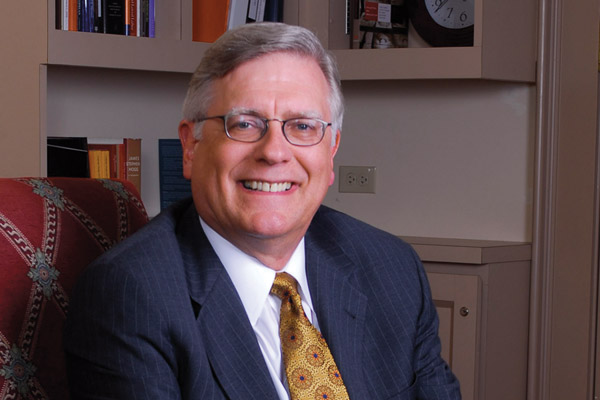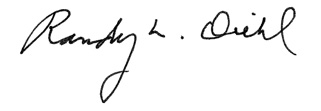Dear Friends,
In my last message I wrote about how a liberal arts education uniquely equips our students for the rapidly changing global marketplace, making them attractive to employers in many sectors.
Attributes that make our students top hiring prospects— the ability to think and communicate creatively and critically, to analyze situations from multiple perspectives—also are attributes we find in great leaders. Indeed, as a prominent alumnus recently observed, a liberal arts education “is the best education for anyone aspiring to be a leader.”
Liberal arts students become successful leaders not only because of the breadth and depth of their education, but also because they are engaged in diverse experiences—research, internships, campus organizations, study abroad— that impart knowledge and skills one can only learn by doing.
Some studies suggest that more than a third of Fortune 500 CEOs have liberal arts backgrounds, and more of them hold liberal arts B.A.s than professional degrees. The same is true for doctors and lawyers. Last year Google executive Marissa Mayer said her company expected to hire 6,000 new employees, with 4,000 to 5,000 of those hires coming from the liberal arts. In fact, one of our former student employees, Molly Wahlberg—a Liberal Arts Honors alumna with a Master’s in Latin American studies—was recently hired by Google in large part because of her liberal arts background and her working experience as an intern.
Writing in the Huffington Post this past July, Edward Ray, the president of Oregon State University, noted “in today’s global economy, most people will have six to 10 jobs during their careers, and liberal arts majors are the most adaptable to new circumstances. No one knows what the jobs of the future will be, but a liberal arts degree provides a great foundation for adjusting to new careers and further education.”
No better proof can be offered than our recent Pro Bene Meritis honorees—Ben Barnes, Toyin Falola, Marion Mark, Jeanne and Michael Klein—leaders in government, education and philanthropy and shining examples of lives dedicated to learning and service in the name of the liberal arts. I encourage you to read their stories in the latest online edition of Life & Letters magazine.
I hope you will join these outstanding leaders in telling others about the importance of a liberal arts education. Our future as a nation will depend on our ability and determination to provide strong and ethical leaders to all sectors of society, to uphold Thomas Jefferson’s vision of educating citizens and leaders to understand the meaning of liberty and to exercise it wisely.
Best,
Randy L. Diehl
David Bruton, Jr. Regents Chair in Liberal Arts

